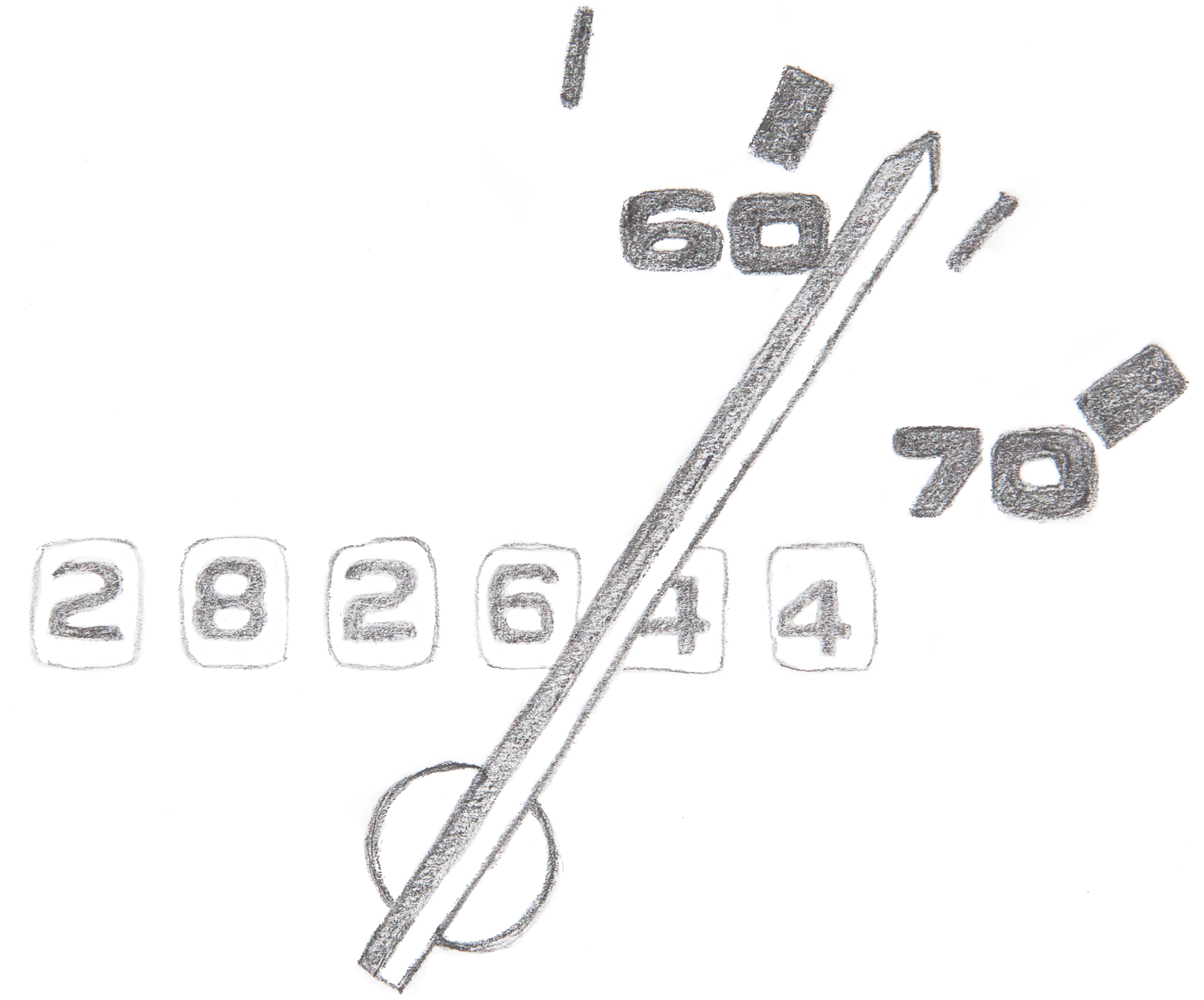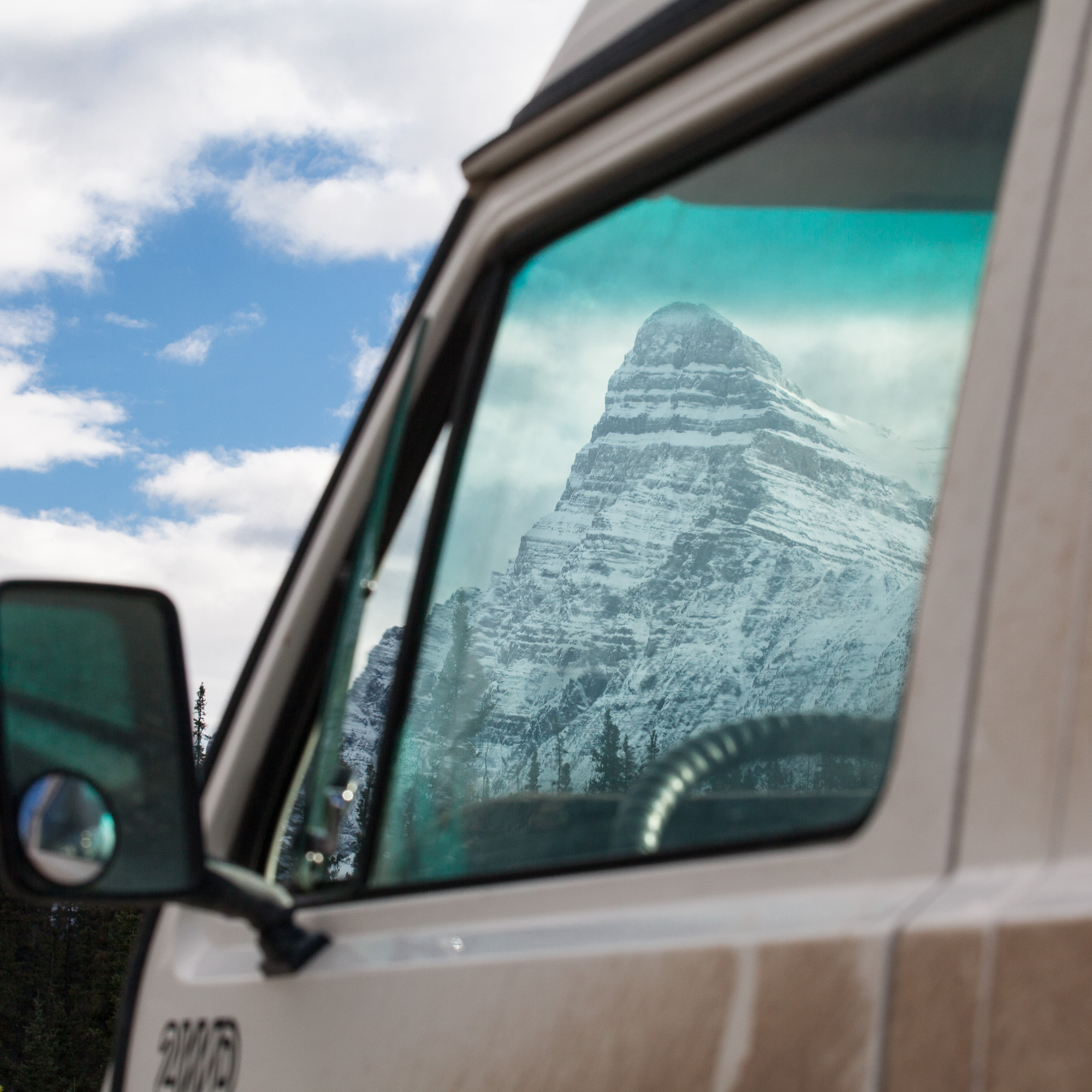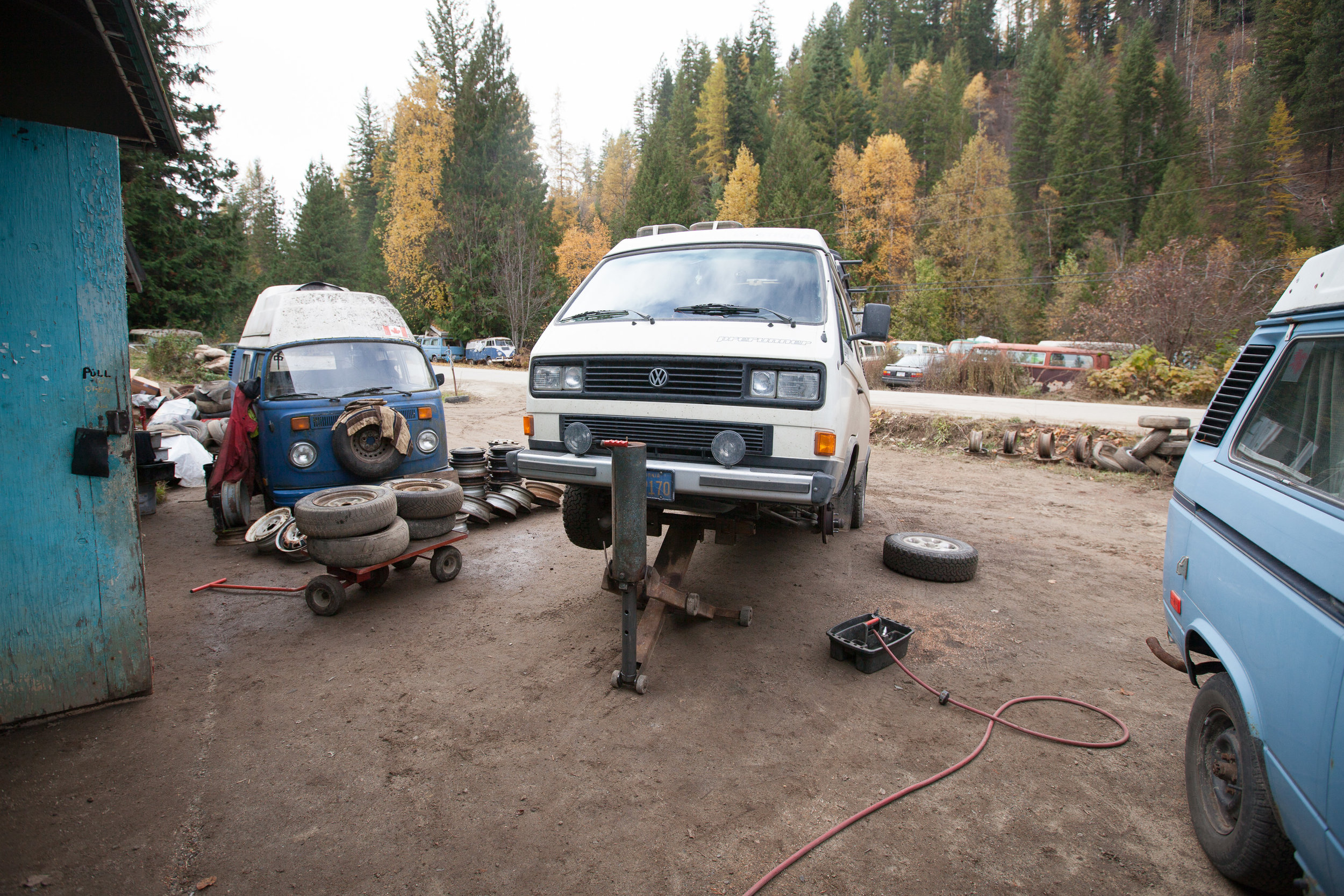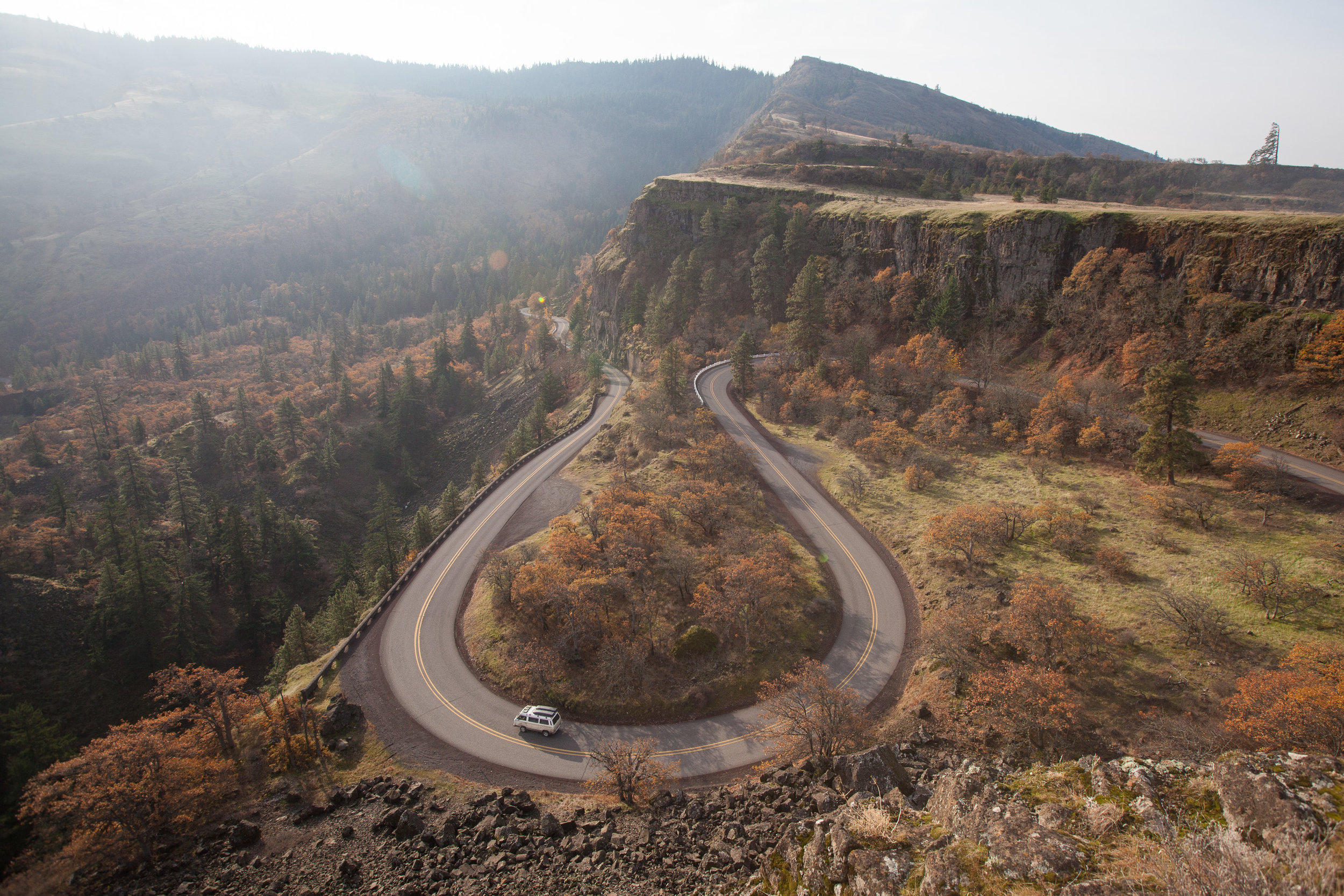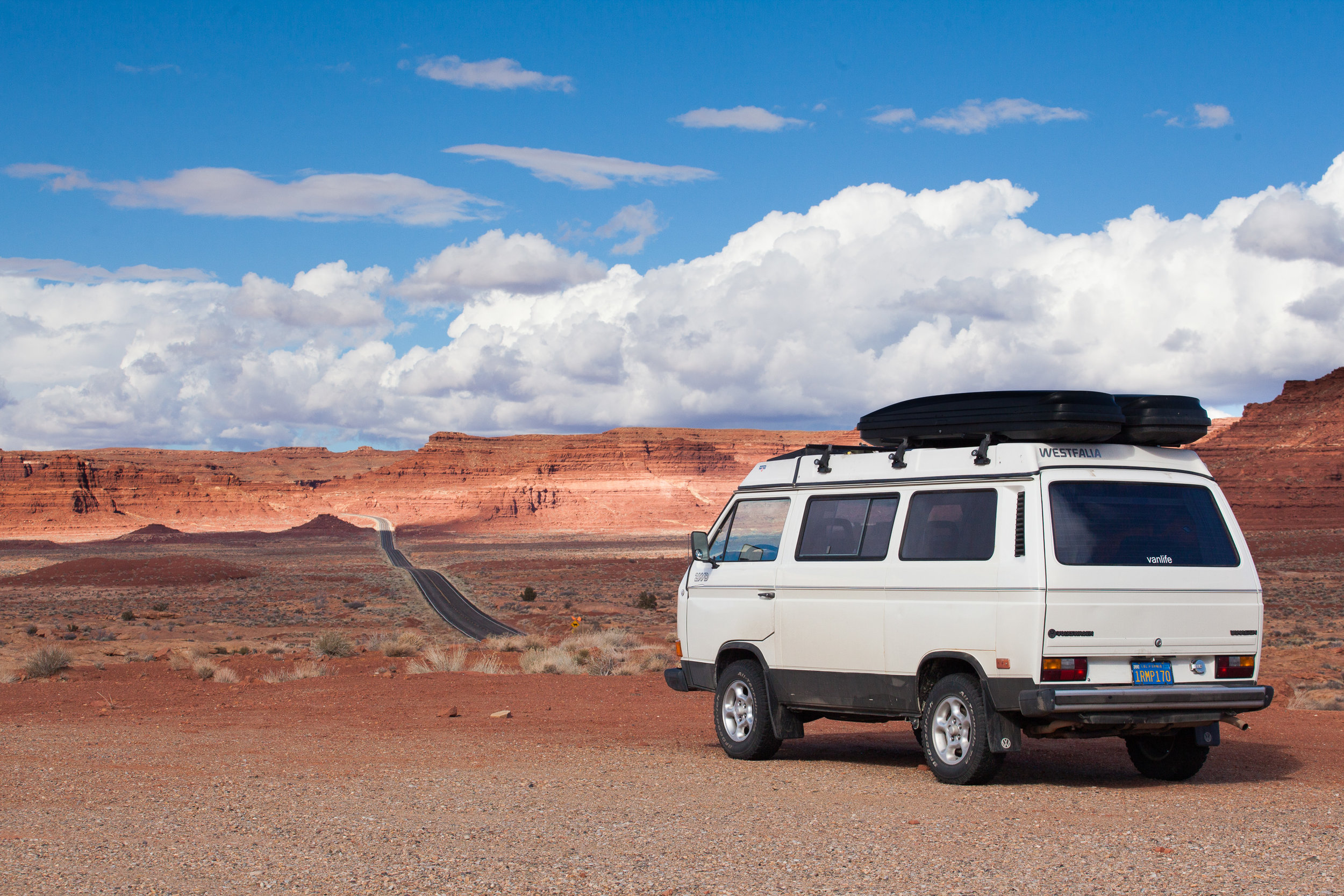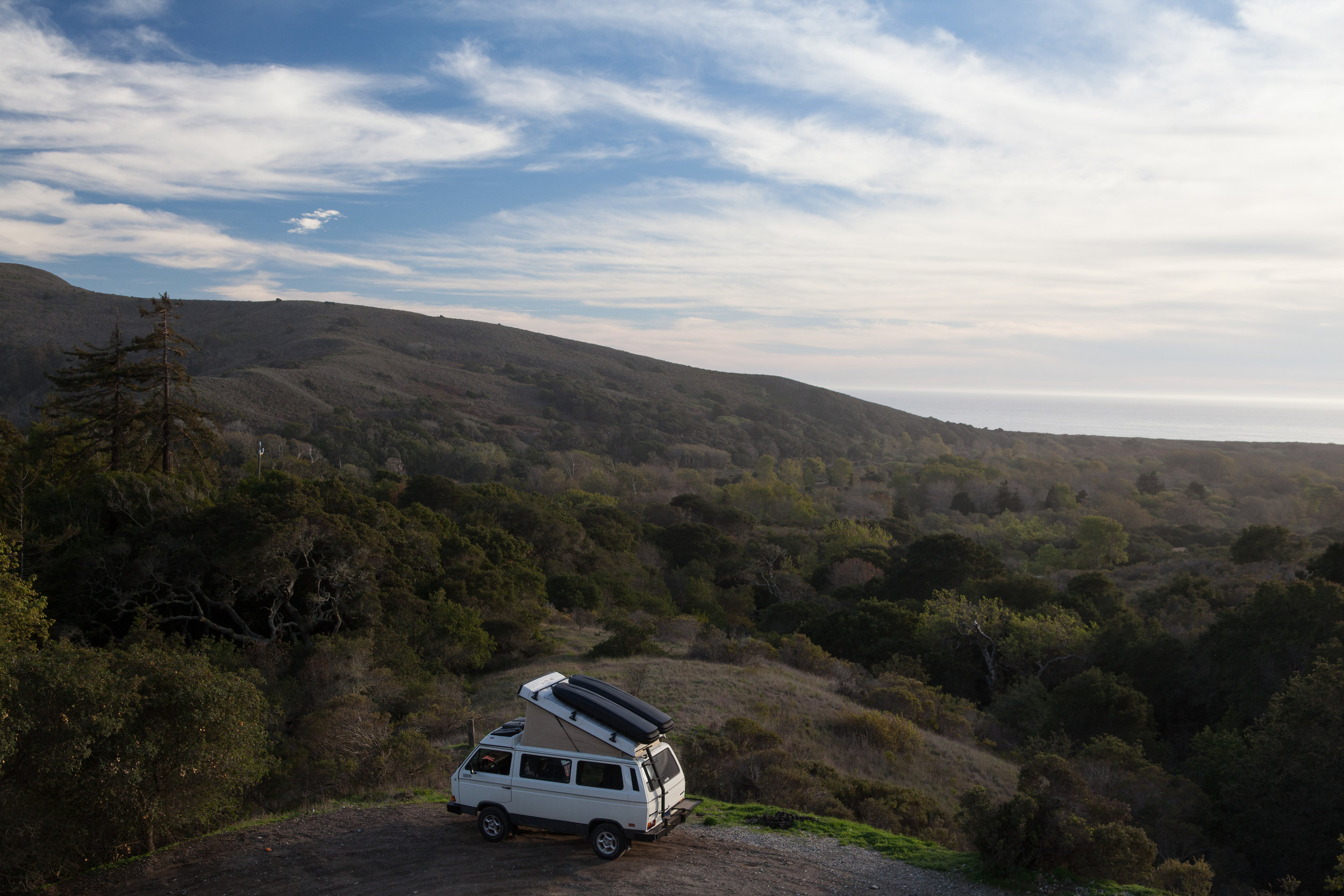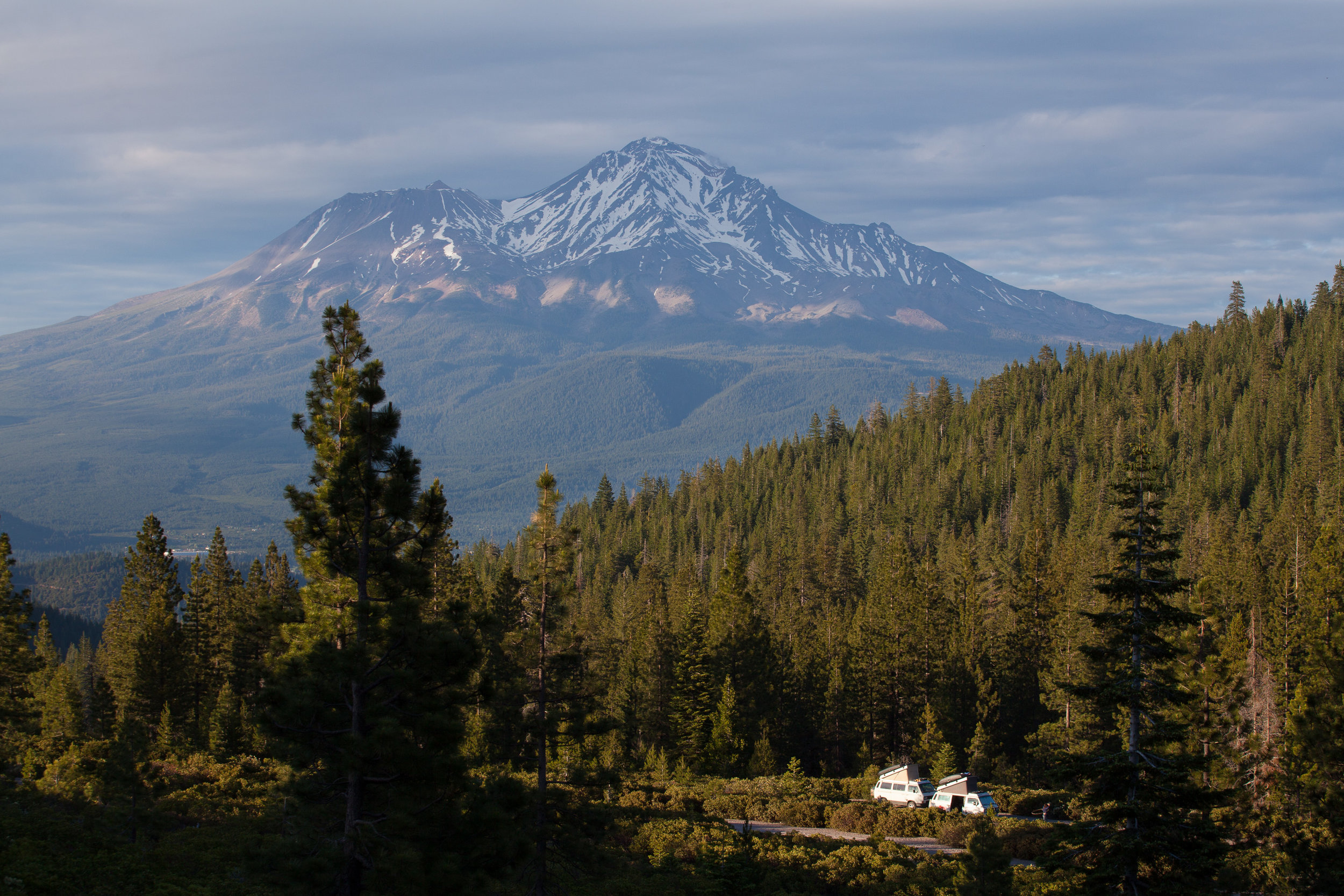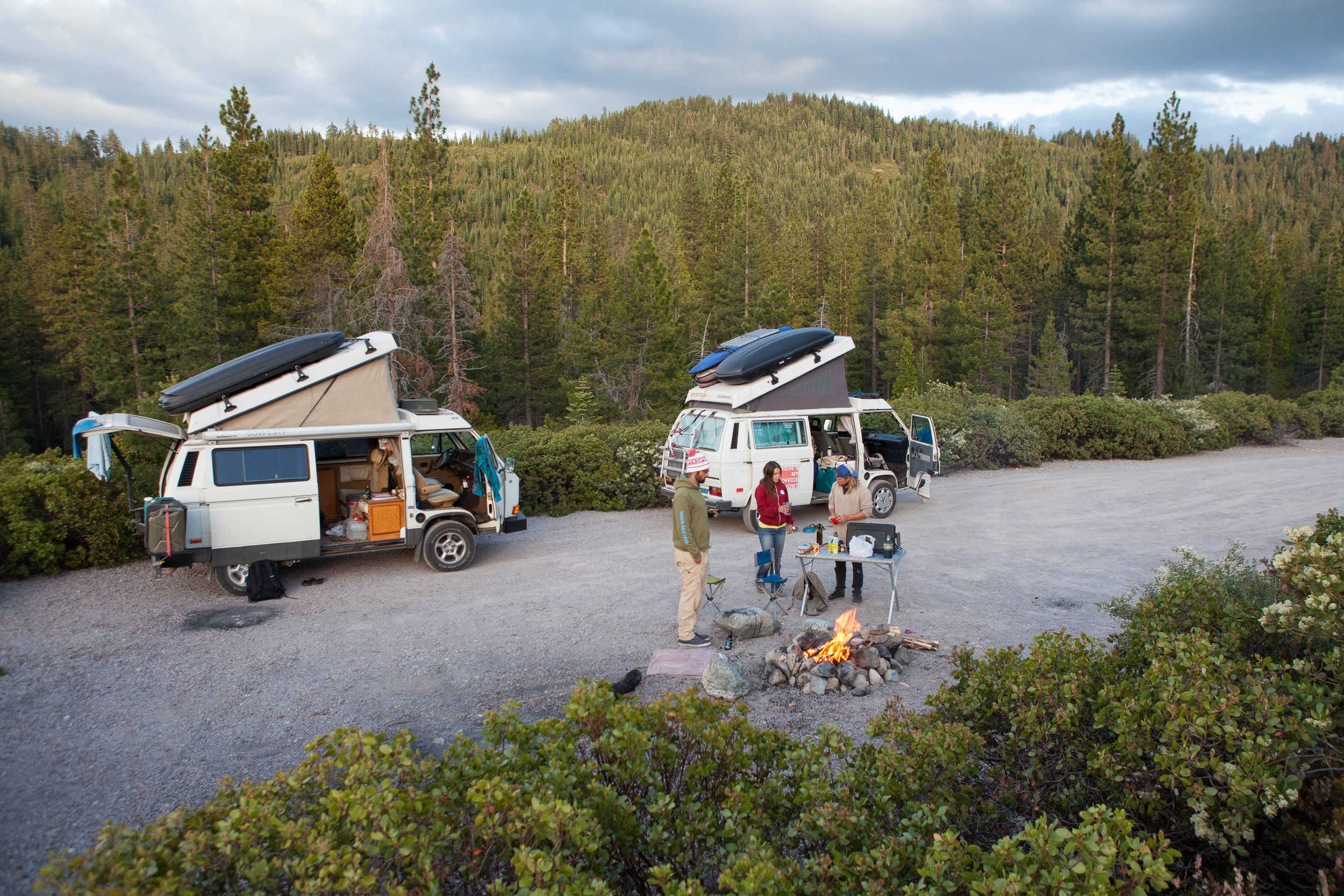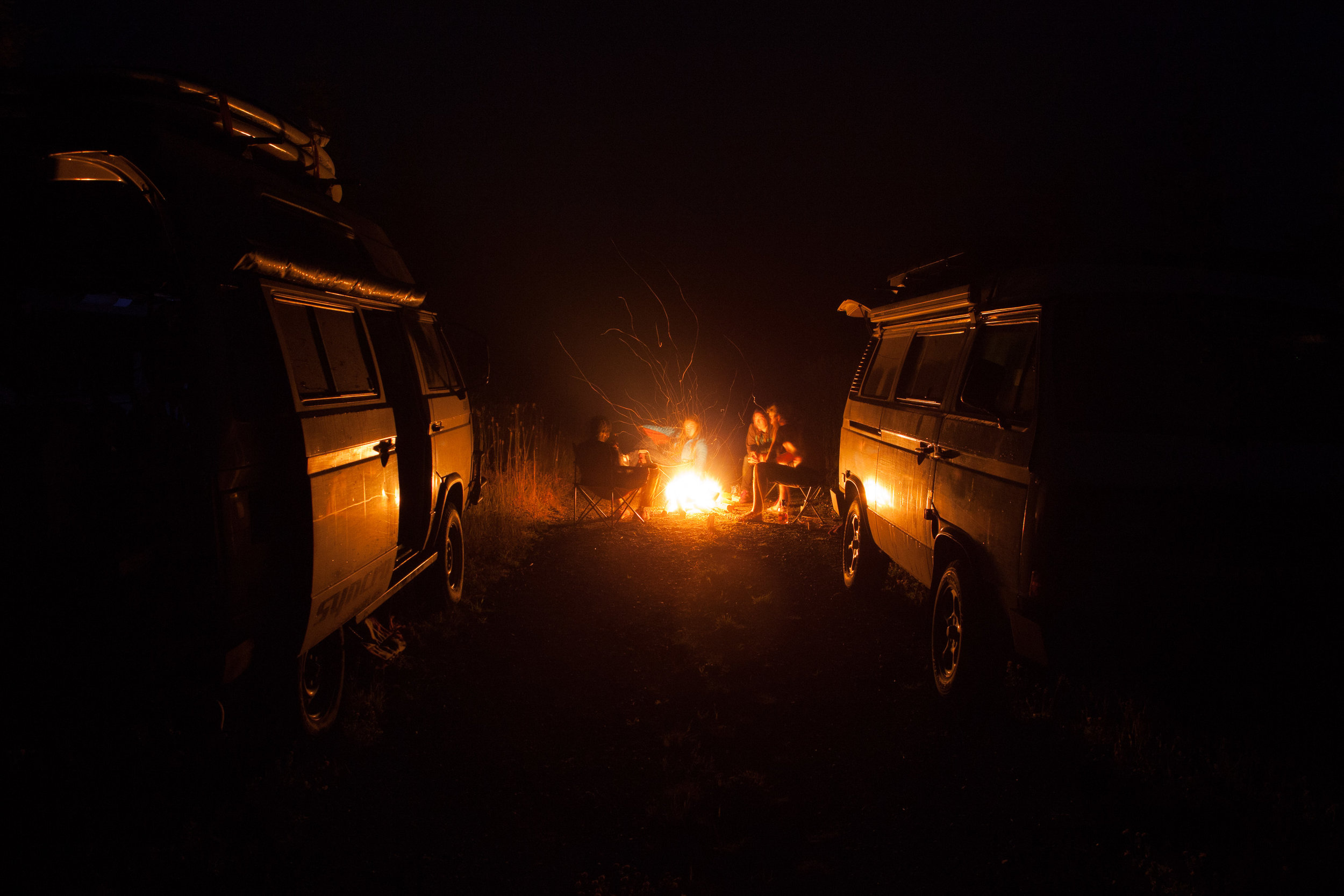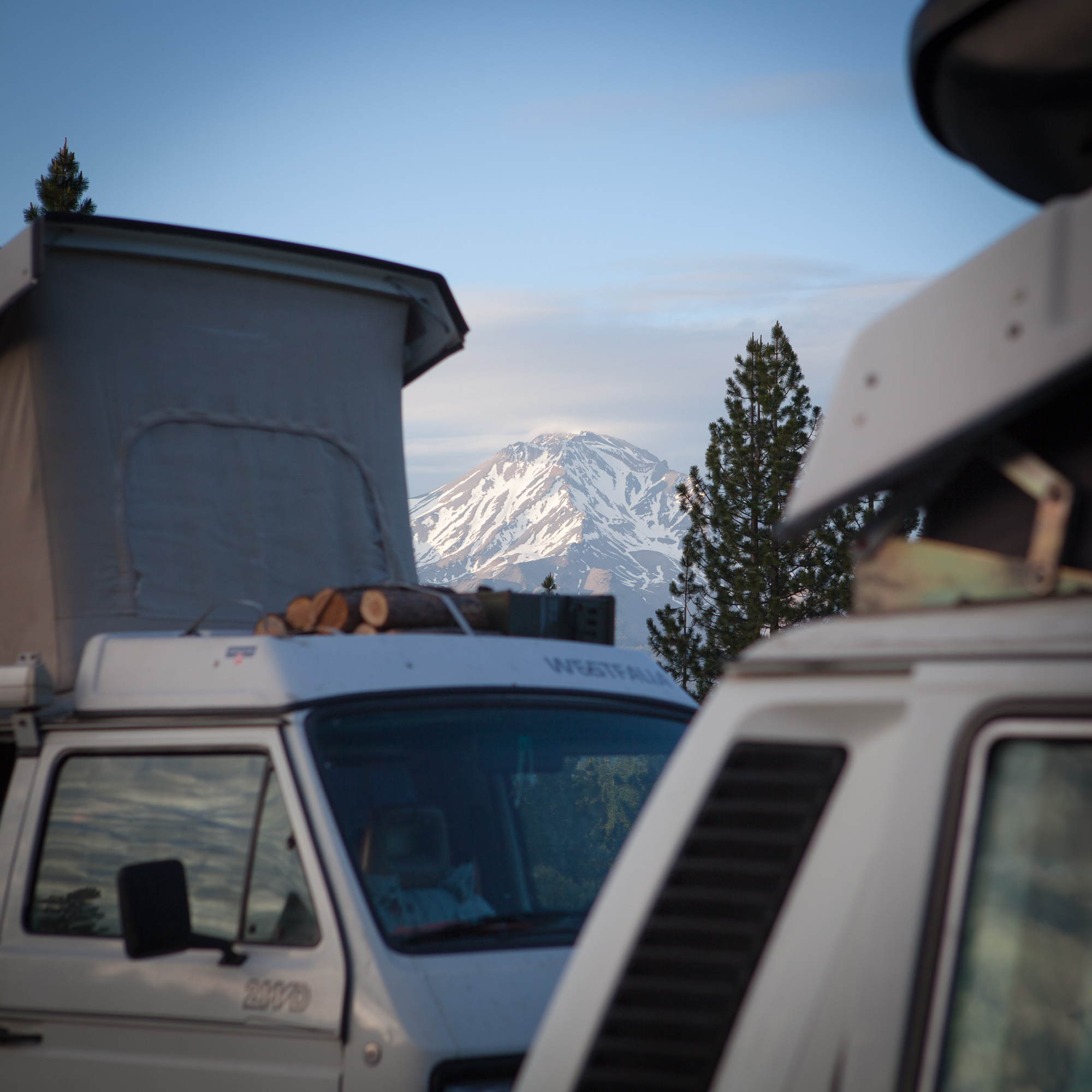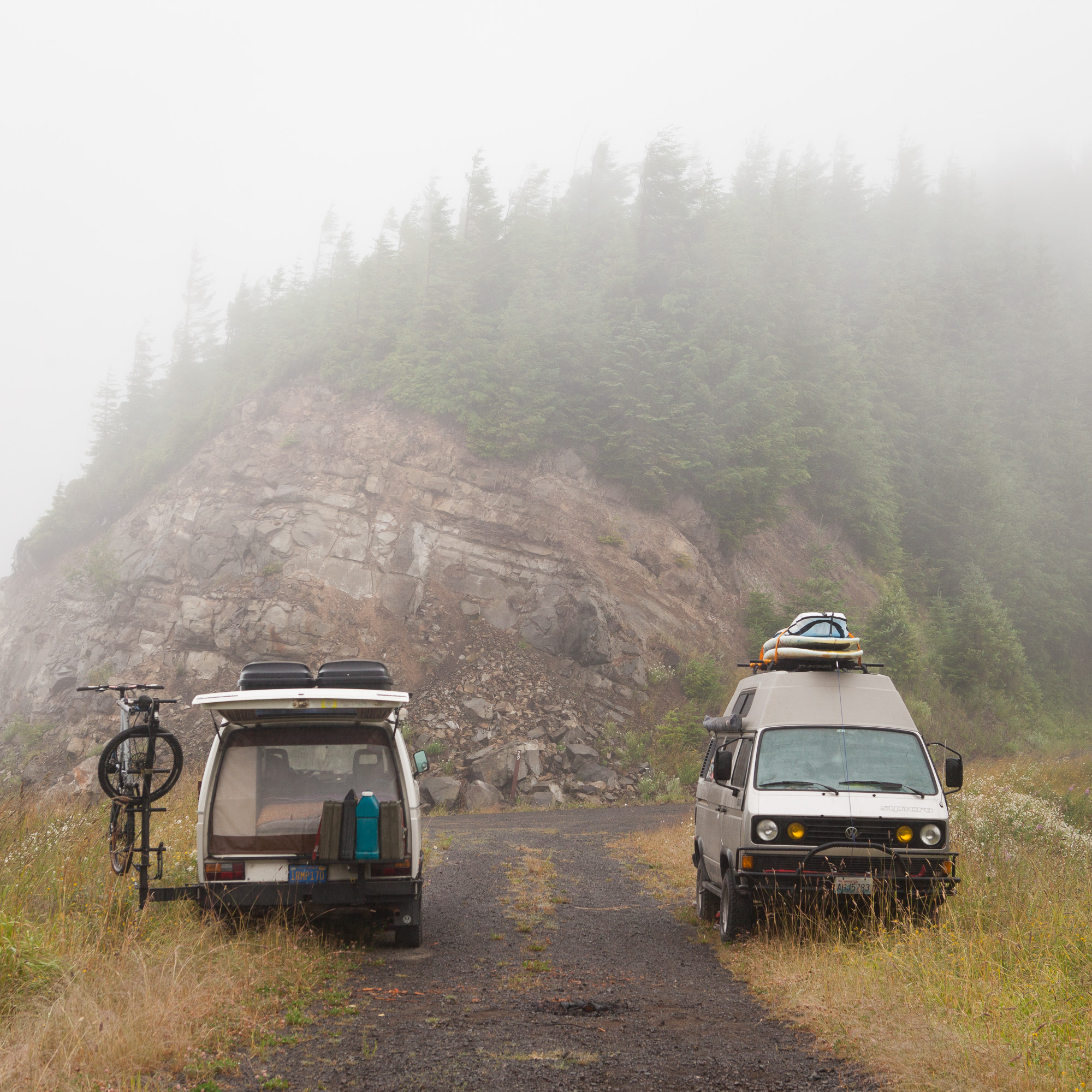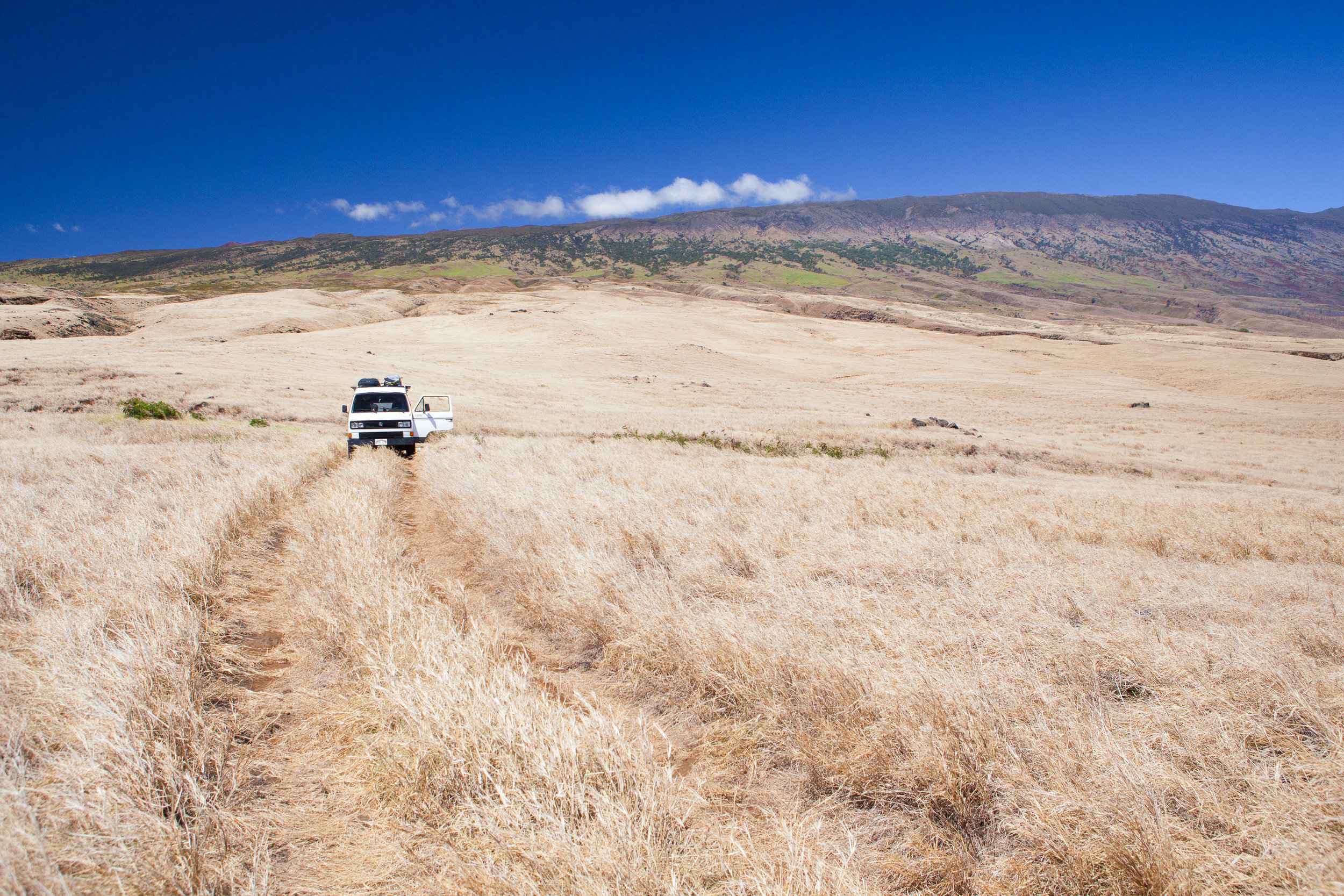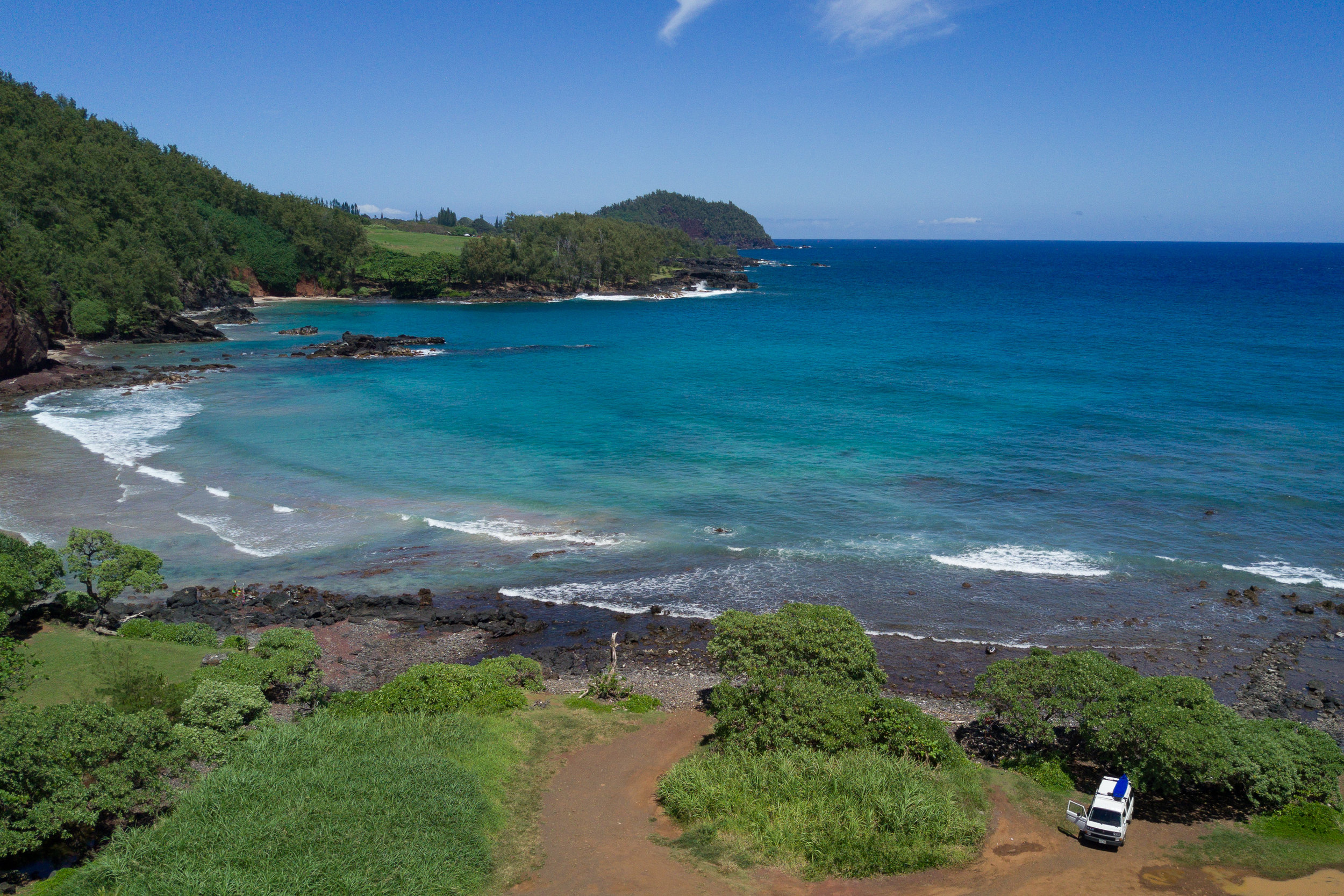Vanlife Isn't The Answer
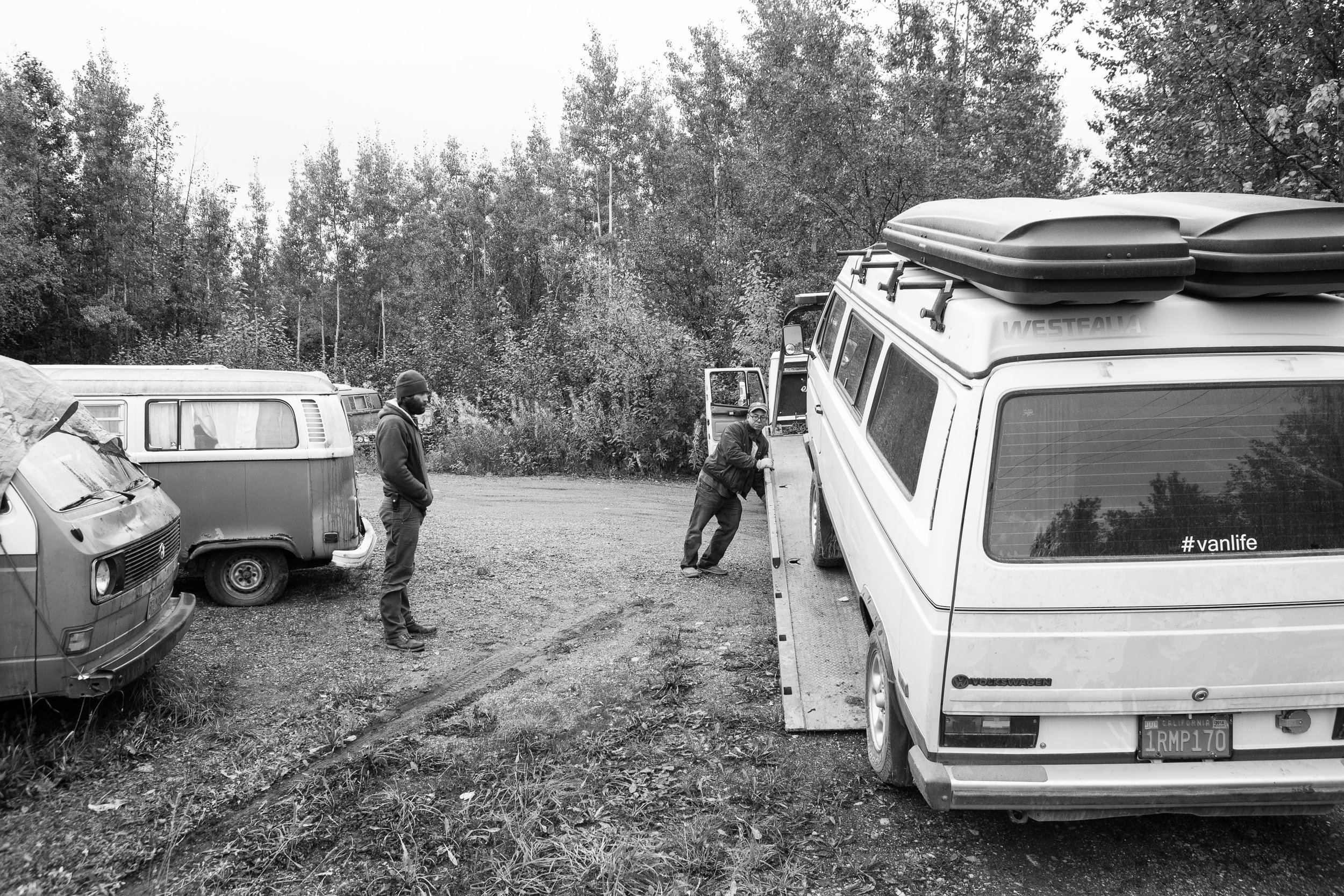
Two years ago, during my van travels, a high schooler found me on Instagram and emailed me this question:
“I just finished reading On the Road by Jack Kerouac. The most shocking aspect was that all their searching and travels never amounted to anything. They set out on a physical and spiritual journey of discovery, but it never seemed to be enough. So back to the road they went. Have you experienced this empty searching?”
Oof, what a doozy.
It’s likely you’ve noticed the swiftly-growing movement our generation calls “vanlife.” Like the Beat Generation’s seeking, vanlife is a burning desire to hit the road and escape something – boredom, the system, a job, family, out-of-control rent, lack of inspiration, a former love, or [insert personal pain here].
I spent 2013-2015 solo seeking in my ’86 Volkswagen Vanagon. I’ve spent the last two years living in a house, in a single location. All the while, the high schooler’s question has pummeled my brain – does hitting the road actually answer anything?
Vanlife is portrayed as the #yolo life solution, one perfectly crafted image at a time. But that’s not the whole reality. A recent New Yorker article highlighted Where’s My Office Now’s (two good friends) Insta-struggle to make money vanlife-ing, while staying true to themselves. For me, the vanlife struggle was all about experiencing the highest highs and the lowest lows. Like a perfectly free campsite overlooking Mount Hood’s ice falls under the Milky Way AND middle-of-the-night-loneliness-induced panic attacks. Plus the haunting question – how can anything ever compare to this?
“Truth is, nothing does compare. The road is mind-bendingly inspiring, which is exactly why everyone should do it for a year or ten, just don’t expect it to fill the void. As I discovered, the road solved some of my problems and created others.”
Why I Ran
I needed to prove to myself that I could follow my deepest inner voice – that irresponsible kid who says “do it because it’s fun, dammit!” – and things would end up OK.
Some background: I grew up a swimming star in my Indiana community – the kid labeled “most likely to succeed.” Barf. I led a highly-regimented life where everything revolved around the next achievement. From the age of 10 to 18, I swam 3-4 hours per day, ate, slept, and did homework. Stanford and 30 hours/week of competitive swimming followed. After college, I spent the next eight years thrashing to stay afloat in the frantic pace of Silicon Valley, where “changing the world” is standard chatter. Everything in my life was pushing me towards nearly impossible expectations. Nothing about this felt sustainable, nor did it allow me to slow down and savor the moments I should’ve been celebrating.
Every step of the way, my family and mentors cringed at my deviations from the achievement path. After college, I quit my “sure-thing career” to start a tech company with two friends – small cringe. Then I quit that start-up to pursue writing and photography – medium cringe. At age 30, I sold my reliable Subaru and bought a 30-year-old Volkswagen van – big cringe. I was following my heart, and that was scaring those close to me.
I hit the road (with basically no plan) to reset MY expectations, not just continue living out the ones I’d inherited from my loved ones and formative institutions. I was grateful for my upbringing and all the experiences I’d had, but I foresaw a path of discontentment. I could no longer let life’s inertia control me. So I drove into the woods – my religion and my sanctuary – for two years. I aimed to rebuild my life on three principles – simplicity, slowness, and a deep connection to the land and its people.
Broken down. Image by Keenan Newman
Going Mainstream
Vanlife has gained incredible steam over the past five years. It’s partly the social media monster feeding the grass-is-greener syndrome, but on a much grander level, I believe many of us are questioning the WHY in our lives. Why am I doing the things I’m doing? Did I choose this, or is this just where I ended up? I’m really stressed out and don’t see where this is leading. There’s got to be more!
Many of us do not desire more of Capitalism’s stuff, we desire more meaning. We want experiences and memories to take to our deaths, not the stress of accumulating stuff that our kids will have to sort through and give away.
Vanlife has become the mega-symbol of experiential, simple living, and for this reason it’s flying off the shelves. The previous generations handed us an out-of-control world, and vanlife is our rebuttal.
Afternoon ritual, photo by Keenan Newman
Emotional Byproducts of Living on the Road
I got a lot out of those two years living full-time in the van. It only took one good breakdown, 20 miles down a dirt road (with NO SERVICE), to free me from my false sense of control. I spent most of my time in the red counties, interacting face-to-face with people I fundamentally disagreed with. When a stranger is simultaneously feeding you and making racist jokes, the conflict of the human condition is no longer just a New York Times article. To avoid flipping over the dinner table and getting into a yelling match, I had to become a better listener and less judgemental.
Most of my days were spent hiking, skiing, photographing, yodeling, swimming naked in rivers, writing, and talking to my new friends – the trees and animals. I fell deeper in love with the land and vowed to protect it. And my old VW van definitely forced me to slow down. Now I’m that guy who pulls over (with a chuckle) and lets the tailgaters zoom by.
I also inherited some less desirable traits from vanlife. I became way more restless. After about a week of being in one place, I’d get the Kerouac-itch and flee the scene. Mainly because I could. Often the itch emerged from the thought there’s so much more out there to see! But other times, I fled the discomfort of a place or group of people. Driving away when I didn’t like the present moment was the most dangerous byproduct of vanlife.
Also, being in the woods by yourself definitely makes you choke on your own Koolaid. I became more self-righteous, thinking my way of life was the right way and everyone else was blowing it. There were several notable episodes where, after being alone for 2-3 weeks and returning to a crowded, fast-moving city, I nearly lost my marbles. What the hell are all you people thinking?!
Ironically, by setting out to be more flexible, I actually became more set in my identity as a van-man. I said things like I will never pay rent again (suckers!). I will never buy a house (who needs that much space?). I will never have a real job (I live simply!).
But then I did have to pay rent again. And I had to get a real job. And then I bought a house… because I wanted to. I guess we’re all big-league (or is it bigly?) hypocrites.
The Beauty in Staying Put
Vanlife (via wedding photography) ultimately led me to Hawaii and my amazing girlfriend, Haley. Hawaii is well-known for its slow-living (Hawaiian time, brah) so I should’ve instantly felt at home. Yeah, not quite.
Unlike the mainland, my solo travels meant nothing to people here, where a white man in a VW van equals an invasive species. And I had to buy a bed again?! Worse, I needed a full-time job since I burned through my savings to fund vanlife. My impenetrable van-man identity was squashed... and I could no longer drive away from my discomfort.
The hardest part of vanlife was definitely coming off the road, as it forced me – again – to confront and endure the aspects of society I disdained. Perhaps, this is why the Beat Generation couldn’t bring themselves to stop.
Ultimately, Hawaii, and everyday-life’s reality slaps were the missing pieces that finally deflated my ego, something the van certainly couldn’t do (especially with a big Instagram following). Vanlife defined my values (simplicity, slowness, and a deep connection to the land and its people), learning to stay put cemented them. This time with no wheels for escape.
There is no denying it, our generation has inherited a questionable system that we have to accept and redefine. So do it! Wander in a van and get what you need out of it, but embrace coming back. The van is only part of the answer…the rest has always been in you. And you can’t run from that.
